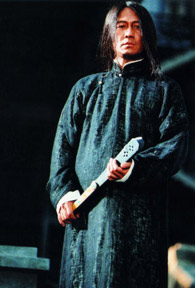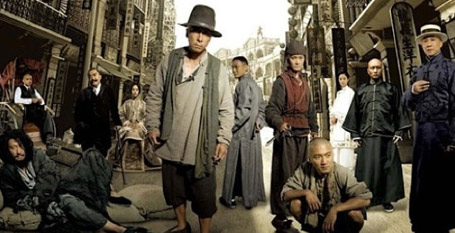If the wuxia (martial art) genre had never existed, I believe China, at the waning of the 19th century, would have invented it out of necessity. It’s an exciting historical moment that’s so fin de siecle and wuxia at the same time: in a land encroached by avaricious foreign empires, warlords, and adventurers, a populace, disgruntled by the misrule of a foreign dynasty, divided by competing loyalties and interests, is united by no more than a hope and a plan offered by a charismatic revolutionary and his network of patriots and idealists scattered all over the provinces.

Sure, there’s just that complication with guns and rifles existing in the late 19th century (though something has to be said about Gu Long’s gunfighting wuxia mash-ups) but I’m very surprised that the wuxia genre hasn’t caught on to its real roots and focussed on this period – until now.
The creators of Bodyguards and Assassins set on remaking the wuxia genre (can we call it neo-wuxia? Pretty please?), retell Dr Sun Yat-sen’s Chinese revolution as a wuxia classic set in the real world, in Hong Kong, 1905. The good doctor must plan a revolution at an all-China conference featuring revolutionaries from far-flung provinces (that’s your wulin conference there!), but his financiers and backers must find a way to protect and secure the doctor from the imperial assassins (that’s your courier agency subgenre there!).
Okay: Donnie Yen might have spoiled the ending for us in his blog in March, but I forgive him entirely. Sun Yat-sen that doesn’t actually show his face in the movie (think “Winston Churchill”) and isn’t even its central focus. But the cherry on the cake has to be how the screenplay works in the Odessa Steps sequence in a wuxia movie.
The classic wuxia themes of loyalty, duty, honour, patriotism and sacrifice are all there, reconfigured for the really-existing political realities of the day. So too are the classic wuxia types – from the tortured hero, the avenging hero, the morally questionable mercenary, the lady warrior, the nasty imperial general... The shock come from watching how sound this neo-wuxia concept is – and the pleasure is in watching just how well it’s pulled off in a completely untraditional literary setting, and just how natural and unforced this comes across.

